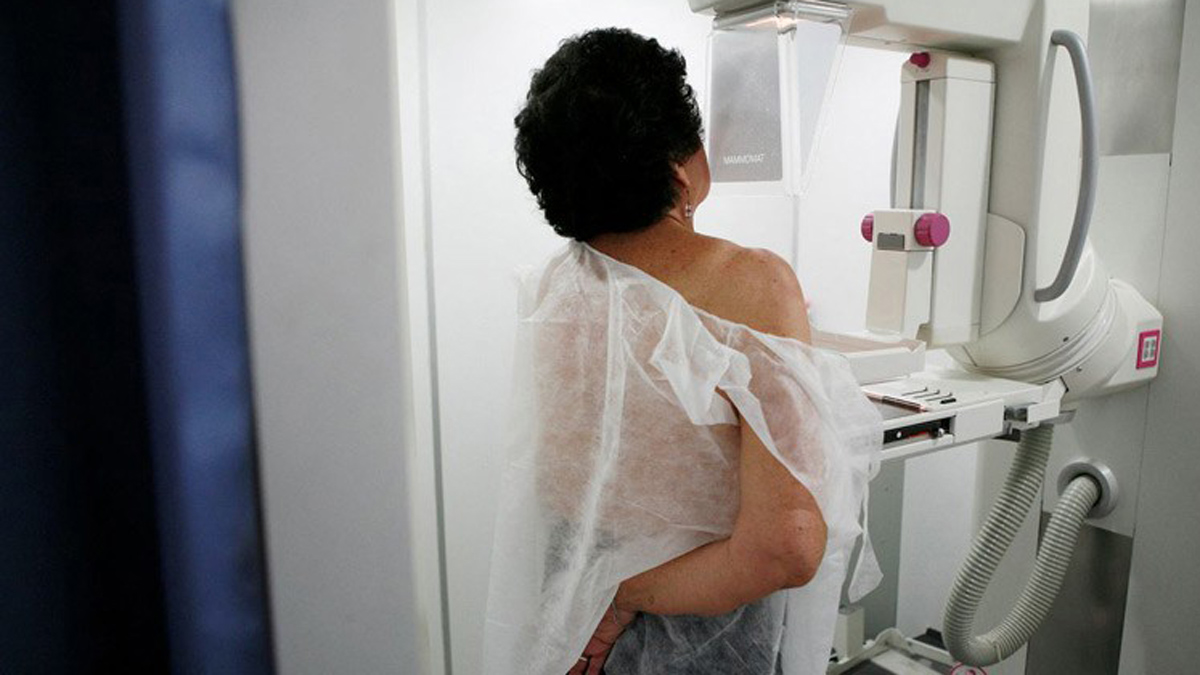In 2013, Hollywood actress Angelina Jolie got her breasts removed because she carried a BRCA1 gene mutation that puts her at increased risk of developing breast cancer. Jolie underwent a prophylactic double mastectomy so she wouldn’t get breast cancer.
Eleven years later, Jolie's example comes to mind as now, experts say, that not just women in the older age group, but even those in their 20s and 30s are at an increasing risk for breast cancer and one of the most "important risk factors in the younger age group is genetic."
October being the month of breast cancer awareness day, the rising incidence of breast cancer among young women highlights the urgent need for increased awareness, early detection, and proactive prevention strategies.
Sunita Saxena, a researcher with the National Institute of Pathology, VMMC and Safdarjung Hospital in New Delhi, published a paper five years back, which identified risk factors for breast cancer in young women by studying the BRCA1 and BRCA2 germline mutations in a cohort of 204 Indian breast cancer patients.
The study showed a total of 18 mutations, and 44% BRCA1 and 78% BRCA2 mutations were found unique to the Indian population.
"About 5 to 10% of breast and ovarian cancers occur as a result of highly penetrant germline mutations. The studies showed the occurrence of breast cancer at a younger age in Indian women with a significant annual percentage increase in incidence at a younger age. The significant number of cases showing family history indicates the genetic component plays a major role," read the paper.
One of the several possibilities with respect to genetic predisposition in the North Indian population could be a significant proportion of BRCA1/2 mutations which would not have been detected by the method of mutation screening employed. Second, it is possible that there are some unknown genes, which may contribute more significantly to familial breast carcinoma in this population than do BRCA1 and BRCA2," it added.
Breast cancer is currently the most common cancer among Indian women in the majority of urban cancer registries, viz. Delhi, Mumbai, Bangalore, Chennai, Ahmadabad, and Thiruvananthapuram with an incidence rate that ranges between 33 and 41 per 100,000 women, say Saxena.
The analysis by Saxena and her colleagues also revealed a 4.24% increase in the number of women in the younger age group women (15–34 years) compared with 1.6 and 0.8% in the age groups of 35 to 44 and 45 to 54 years, thereby suggesting a significant increase in breast cancer incidence mainly in the younger age group of patients during the last decade.
Dr Shiveta Razdan, Consultant, Breast Oncology, Amrita Hospital Faridabad divides lifestyle factors into two broad categories – modifiable and non-modifiable. The modifiable ones are smoking, alcohol consumption, prolonged use of contraceptives, and obesity.
Meanwhile, an individual’s sex, increasing age, menarche (onset of the menstrual cycle) before 12 years, menopause in women over 53 years of age, and hereditary cancer are some non-modifiable factors.
Dr Saphalta Baghmar, Senior Consultant, Medical Oncology, Amrita Hospital, Faridabad says, “Preventive measures for young women include regular self-breast examinations starting at an early age and annual or biennial mammograms beginning at 35-40 years. It is essential to consult a specialist if any lump persists for more than three weeks."
Treatment options for cancer typically include surgery, chemotherapy, radiation, hormonal therapy, and targeted therapy.



